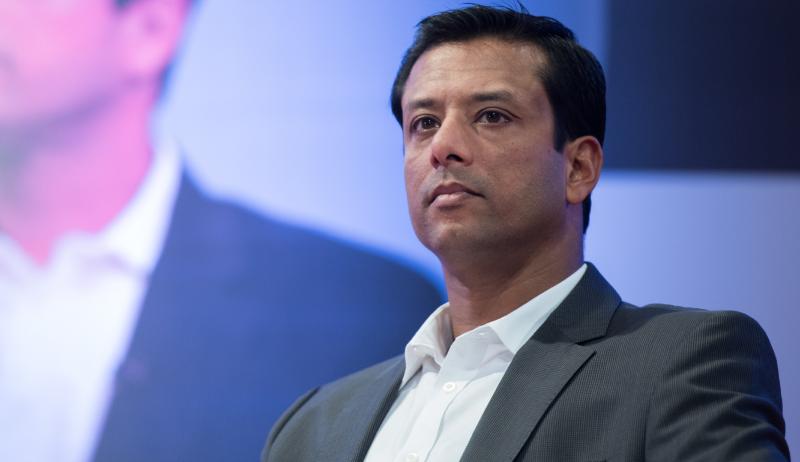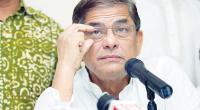 The blame for the “imperfect 2014 election” rests entirely with the BNP, not the ruling Awami League, says Sajeeb Wazed Joy, Prime Minister Sheikh Hasina’s son and her ICT affairs adviser.
The blame for the “imperfect 2014 election” rests entirely with the BNP, not the ruling Awami League, says Sajeeb Wazed Joy, Prime Minister Sheikh Hasina’s son and her ICT affairs adviser.
In a commentary, carried by Real Clear Politics, he said that the BNP didn’t put up a single candidate to add controversy in the election.
“The BNP failed Bangladesh in 2014. Prime Minister Sheikh Hasina said repeatedly that free and fair elections are the cornerstone of democracy and even asked the BNP to help oversee the elections. But the BNP rejected her concessions and walked away rather than wage a public fight. Instead, several of its leaders chose to firebomb polling places,” he wrote.
The BNP appears poised to turn its back on the elections again this this time and has again threatened to stir civil unrest and violence, said Joy.
According to him, the BNP’s popularity dwindled to all-time lows as several of its leaders were charged for their roles in violence unleashed during the 2014 elections.
“BNP leaders – along with members of the allied and often belligerent Jamaat-e-Islami – sparked violent protests that suppressed the vote and tore at the soul of our nation in 2014.
“They and their collaborators set fire to thousands of homes, cars, buildings and businesses. They demolished power stations, murdered 20 law enforcement officers and torched government buildings. On election day, they terrorised their political opponents with Molotov cocktails,” wrote the prime minister’s son.
The BNP never accepted responsibility for its recklessness, he said before adding when BNP-linked agitators fled prosecution, it was alleged that they had been the victims of “enforced disappearances.”
“Bangladesh police have investigated every instance of a reported disappearance. They have found no evidence of government involvement. What they have found is that some of the "disappeared” went into hiding to evade prosecution for violent crimes,” he wrote.
In his commentary published at Real Clear Politics, Joy cited the examples of BNP leaders Salahuddin Ahmed, now awaiting verdict by an Indian court on charges of trespassing, and “BNP-linked intellectual” Farhad Mazhar, who was found travelling on a bus to Dhaka hours after he was reported missing.
“The government hopes that the BNP has recognized its mistakes and is willing to fight a war of ideas, not violence in 2018. Bangladesh should expect nothing less from an opposition party,” it reads.
On the BNP’s calls for release of party chief Khaleda Zia, jailed for corruption, Joy said if that happened, Bangladesh would be relinquishing its hard-won adherence to the rule of law.
“That absence – indeed, the absence of any one person – is no excuse for an entire party to duck the voters. The BNP refused to participate in the 2014 elections and created the situation that it now decries. That irony might be lost on the international media. But it is not lost on the people of Bangladesh. They know better. They deserve better,” he wrote.
 Politics
Politics
41357 hour(s) 8 minute(s) ago ;
Midnight 12:02 ; Sunday ; Jul 06, 2025
BNP failed Bangladesh in 2014: Joy
Send
Bangla Tribune Desk
Published : 23:30, Sep 29, 2018 | Updated : 11:20, Sep 30, 2018
Published : 23:30, Sep 29, 2018 | Updated : 11:20, Sep 30, 2018
0 ...0 ...
/zmi
Topics: Top Stories
- KOICA donates medical supplies to BSMMU
- 5 more flights to take back British nationals to London
- Covid19: Rajarbagh, Mohammadpur worst affected
- Momen joins UN solidarity song over COVID-19 combat
- Covid-19: OIC to hold special meeting
- WFP begins food distribution in Cox’s Bazar
- WFP begins food distribution in Cox’s Bazar
- 290 return home to Australia
- Third charter flight for US citizens to return home
- Dhaka proposes to postpone D8 Summit
Unauthorized use of news, image, information, etc published by Bangla Tribune is punishable by copyright law. Appropriate legal steps will be taken by the management against any person or body that infringes those laws.
Bangla Tribune is one of the most revered online newspapers in Bangladesh, due to its reputation of neutral coverage and incisive analysis.
F R Tower, 8/C Panthapath, Shukrabad, Dhaka-1207 | Phone: 58151324; 58151326, Fax: 58151329 | Mob: 01730794527, 01730794528


